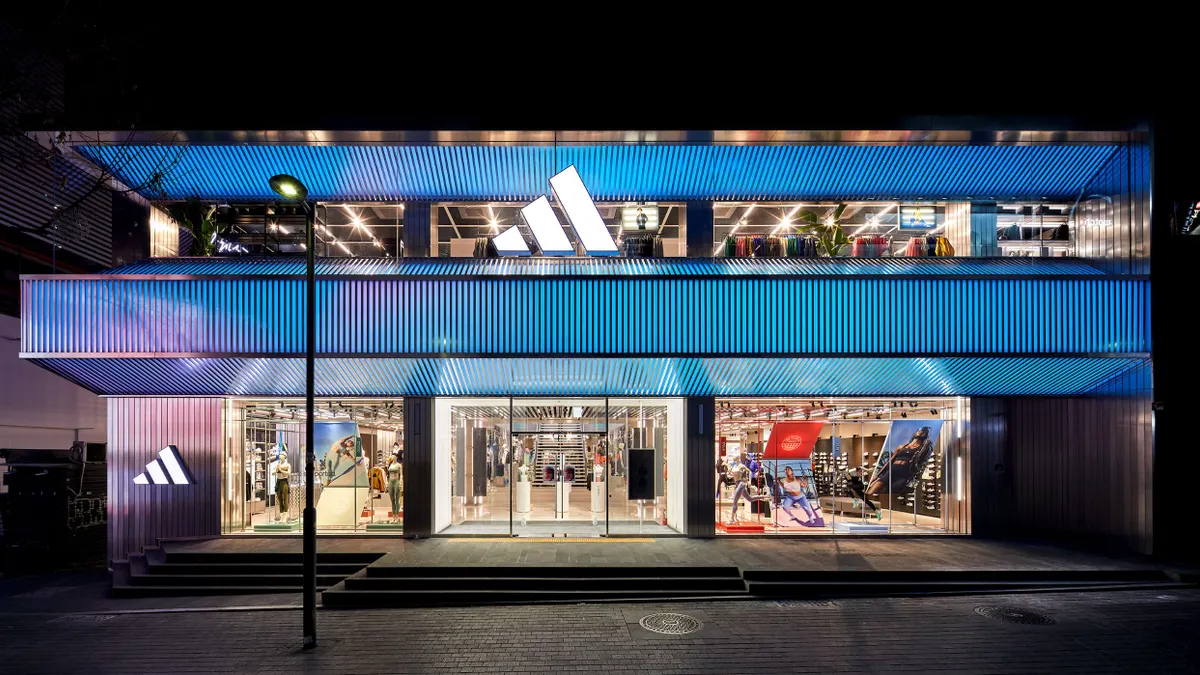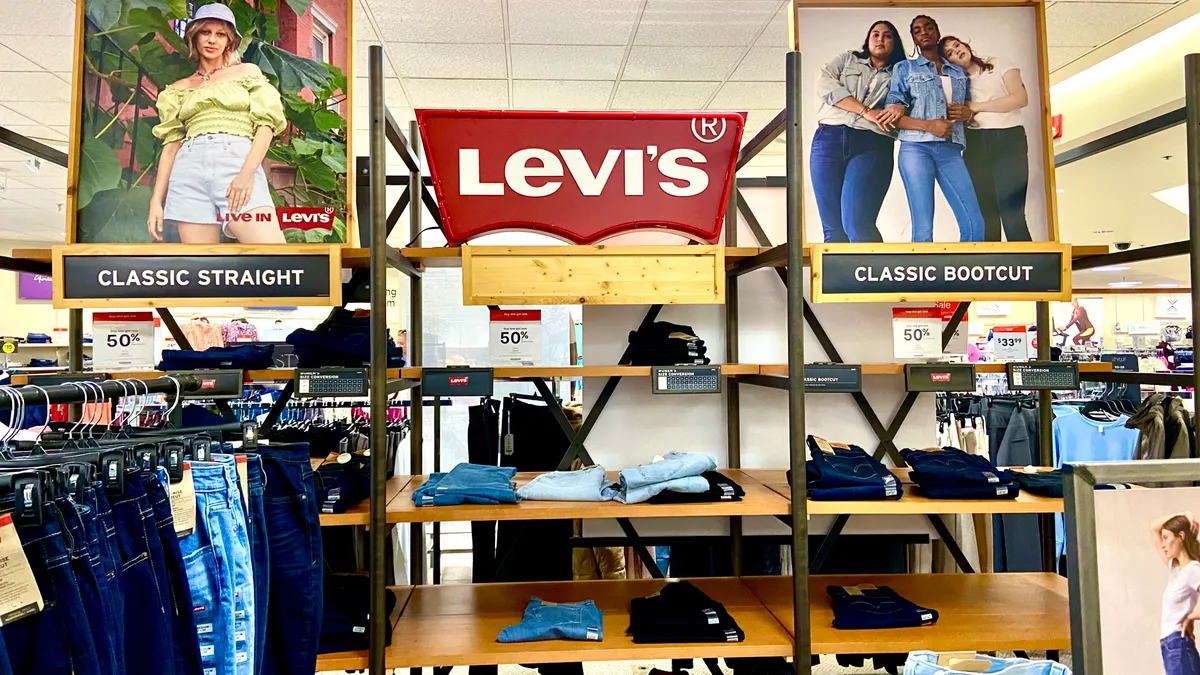Back when Neiman Marcus still publicly reported its finances, it had a special section in its annual report titled "Risks Related to our Indebtedness." The section took nearly 3,400 words to explain the many ways that debt — which in Neiman's final year of reporting was nearly equal to revenue — made the company more vulnerable.
That was a known risk at Neiman for years. After two leveraged buyouts by different private equity groups, the company strained under its debt load, posting losses of many hundreds of millions of dollars some years. Its credit is rated as junk, and Neiman appears on watch lists such as Fitch Ratings' "Loans of Concern."
Now Neiman faces a risk that it — like retailers across the board — did not foresee and was not prepared for: a deadly global pandemic that has prompted the shutdown of much of the brick-and-mortar retail world across the U.S.
With stores temporarily closed and many employees furloughed, Neiman and other distressed retailers are stretching liquidity to keep the lights on. Meanwhile, upturned credit markets have made refinancing debt all the more difficult for overburdened retailers.
"For levered players like Neiman, it puts them in a precarious position," Moody's Vice President Christina Boni said in an interview. "Even the best-run retailers are having to pivot."
Against that backdrop, Bloomberg Law and Reuters have reported that the retailer is exploring a possible bankruptcy. That could come as early as this month, according to Reuters. Then, on Thursday, Neiman missed an interest payment on a group of bonds, according to the hedge fund Marble Ridge Capital.
Neiman Marcus declined to comment for this story, but in an earlier response to the Bloomberg report stated, "We are evaluating all courses of action to preserve our financial strength so that we may continue serving our customers and associates, and being a great partner to luxury brands globally."
In downgrading the luxury department store chain last week, S&P cited a heightened chance of bankruptcy or other form of restructuring given conditions created by the pandemic. Analysts said that the "already heavy pressure on Neiman's performance has been amplified by the store closures and social distancing mandates enforced by state and local government to stem the spread of the coronavirus."
According to S&P, the retailer's overall funded debt burden sits at nearly $4.8 billion, a figure analysts called "onerous." While retailers across the board have drawn from their revolvers to stay afloat during the pandemic, Neiman had already been relying on it to fund losses, as S&P noted in a report. "We don't see them having significant room here to operate," S&P analyst Mathew Christy said in an interview.
'It's the leverage'
In 2013, Ares Management and the Canada Pension Plan Investment Board took over the retailer in a $6 billion leveraged buyout that replaced old debt, leftover from another group of private equity firms in 2005.
As Boni notes, the plan was to grow the company into its capital structure through an international expansion, but the company was dragged down by trends that have affected much of retail. The company prepared an IPO only to abandon it amid steep declines in sales and traffic in 2017.
As a retailer, Neiman's performance had been halting in the years ahead of the current cataclysm. Comparable sales were up nearly 5% in the fiscal year that ended July 2018, down 5.2% in 2017, down 4.1% in 2016, and up nearly 4% the year before. They were up a modest 0.7% for the first three quarters of fiscal 2019, before Neiman stopped reporting.
Reshmi Basu, restructuring editor with Debtwire, said in an interview that Neiman CEO Geoffroy van Raemdonck's "message to the market" has been that earnings are stabilizing, with its most recent earnings in line with expectations.
In the past, even in quarters when Neiman was able to expand its sales it still often posted losses, owing in large part to its interest payments and other debt-related costs.
"Their trends when still filing weren't terrible, they were keeping pace," Boni said. "It's the leverage, it's the lack of free cash flow. The leverage just holds you back in terms of what you can do — in terms of investing in the business, in being strategic about the business."
That doesn't mean Neiman's stores looked shabby or it that lacked online capabilities (things that could be fairly said of other distressed retailers). "It's the amount of money you can put in to experiment, to grow your customer base beyond your core," Boni said. "Those things cost money, they cost resources. You can't always think about profitability in the short-term. You have to think about the long term."
Fights over the 'crown jewel'
Last year, the retailer gave itself some breathing room through a deal with lenders to extend its debt maturities. That might have put off a major cash crunch in the short term, but it didn't solve the retailer's larger problem. "When they came out and did the distressed exchange, it didn't take leverage off the balance sheet, it didn't take interest expense off," Boni said.
Neiman has also been dogged by lawsuits from some lenders after it transferred its successful MyTheresa e-commerce unit out from under the Neiman corporate umbrella and into an entity controlled directly by Neiman's private equity owners via a series of intercompany dividends. Some lenders have alleged this was done to keep a valuable asset away from lender claims.
In a lawsuit filed in New York state court, UMB Bank, a trustee for some of Neiman's debtholders, alleged that, at the direction of its private equity sponsors, Neiman seized a "billion-dollar crown-jewel asset" and spirited it out of the reach of lenders.
Then, "Ares sought to tighten its stranglehold over the Company's creditors," by offering creditors some value attached to MyTheresa in exchange for an extension on Neiman's debt and new terms favorable to Neiman and its owners, UMB further alleged. Neiman has denied the allegations, and the lawsuit is still working its way through court.
All of this could set up a fight in a potential bankruptcy, according to Debtwire's Basu. As a Debtwire report from late March noted, the transfer of MyTheresa could be the subject of a fraudulent conveyance suit by lenders in a bankruptcy scenario. Such litigation is a common path for unsecured and other creditors seeking repayment in Chapter 11 case.
'God awful' timing
If Neiman is forced into bankruptcy, will it survive the process?
Even with underinvestment, Neiman's core business could be salvageable, underneath its billions of dollars of debt. Founded more than a century ago, the retailer calls itself one of the largest sellers of luxury apparel in the world and does nearly $5 billion in sales annually, around a third of it online. The company describes its customers as "educated, affluent and digitally connected."
As of last spring, around 60% of those customers were under the age of 54, and a third have net worth greater than $1 million, according to the company. So while some might mock the champagne vending machines and $70,000 custom dog houses that Neiman purveys in its famed Christmas catalogs, a good chunk of its core customers can actually afford such things, along with the typical fare of Neiman, like products from Prada, Valentino, Chanel and other high-end designers.
Boni says that Neiman still has a "formidable brand" with a strong offering. "They are integral in that regard to the space," she said, referring to the luxury retail sector.
Christy said that luxury department stores as a sector are not over-stored, nor is the field over-crowded with retailers. Moreover, he notes Neiman's store fleet is relatively small, with 43 Neiman Marcus stores in the U.S., and two Bergdorf Goodman stores in Manhattan. Given all that, he said there is a strong likelihood the company would emerge in a bankruptcy scenario.
Basu also said Neiman has "brand value" left. But the company is severely limited in its options for paying back its debt, including by issuing new debt.
And along with all the other problems wrought by the pandemic — store closures, recession, volatile capital markets, general uncertainty — Basu points also to the steep drop in tourism from travel shutdowns. Those are particularly painful to Neiman, which has built its footprint largely in destination markets like New York and California. More, Christy notes that luxury products are "highly discretionary" and among the purchases customers are likely to curtail in a downturn.
It's a wretched set of circumstances for Neiman. The pandemic was unforeseen and outside of the retailer's control. But its debt load was the result of financial engineering, a leveraged buyout that was part of a spree of private equity buyouts in retail, a sizable percentage of which have ended in bankruptcy.
"Neiman is a company that is facing so many challenges right now it's just unable to grow into its capital structure," Basu said. "The timing of this pandemic is just God-awful for these retailers because it pushes them closer to restructuring. It is an added blow to long-term problems."























